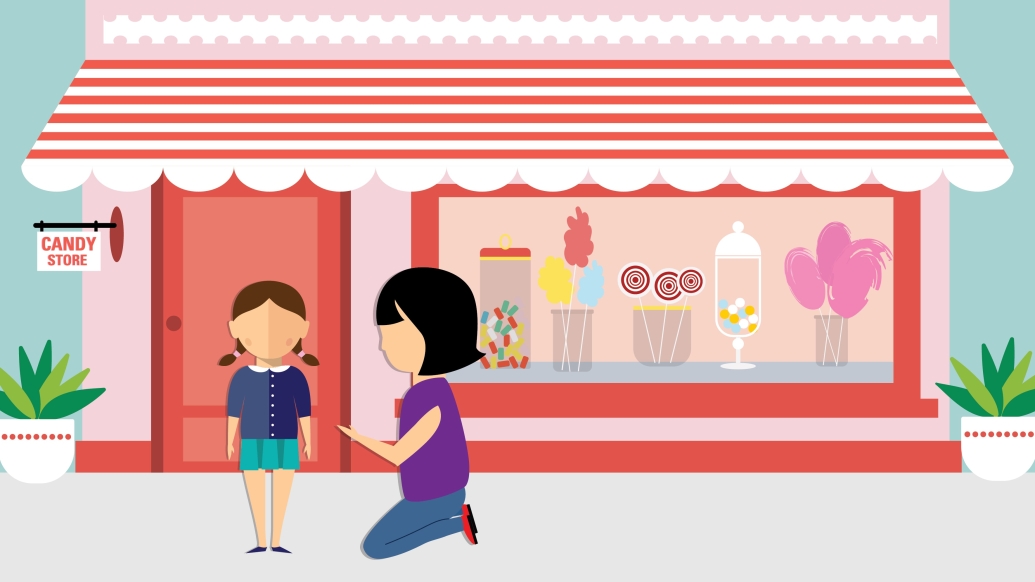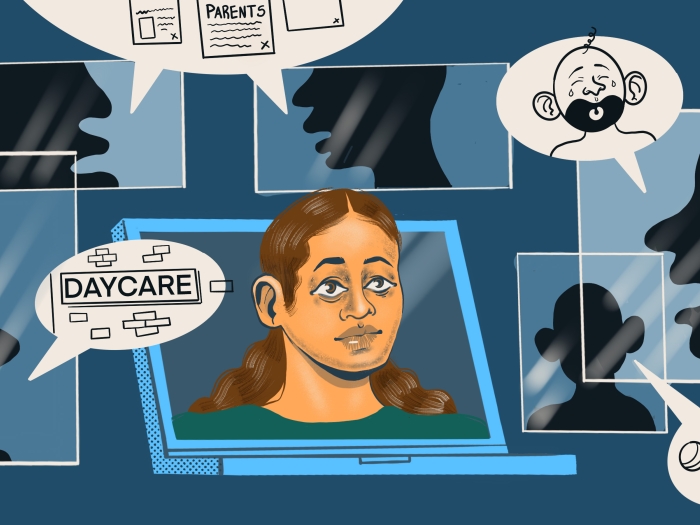Ever wonder if you use proper boundaries with your child? A pediatric psychologist offers a “litmus test,” plus great reasons to keep trying.
7:00 AM
Author |

As a work-from-home mom of an almost-preschooler, my days are spent setting limits, dealing with the fallout of limits that I set and that she pushes, and wondering whether I'm doing it right.
SEE ALSO: 5 Ways to Prepare Your Child for Kindergarten
I question myself all the time. Am I saying "no" too often? Am I saying "no" about the right things? Am I too "mean"?
But then I'll hear story after story about people acting as though their behaviors have no consequences, and I'll think, "Wait — am I setting enough boundaries? Am I enforcing them effectively? Will my daughter eventually understand that the world doesn't revolve around her?"
It turns out that clues can let us know whether we're on the right track in establishing boundaries for our kids, says Blake M. Lancaster, Ph.D., a pediatric psychologist at C.S. Mott Children's Hospital.
"A good litmus test is: Does the kid function well in structured settings outside home?" he says.
A kid doesn't have to be perfect; there are going to be occasional behavioral issues. But looking at whether your child is generally prosocial and decently compliant with peers and authority figures — in a variety of settings — matters.
Can he successfully navigate the rules and boundaries in a variety of settings — school, sports, camps? If not, and if behavior issues bubble up whenever other adults place demands on a child, then there are "maybe not enough limits at home."
Accommodating vs. over-accommodating children
Readying kids to handle themselves in different social settings starts at home. But parents don't exactly get formal training in the best ways to set and enforce limits. And it's harder to figure out than I ever anticipated before becoming a parent.
Take the sippy cup of curdled milk I found in my car the other day.
High on my pre-parent list of "things I'll never let my children do" was eating in the car. But when we're running late to school in the morning, when it's almost lunchtime and we're stuck in traffic, when I just can't tolerate the screeching wails for more Goldfish crackers — we eat in the car. It's self-preservation: anticipating what might cause a tantrum and doing my best to avoid those things.
And while there's something to be said for setting my toddler up for success throughout her day, Lancaster notes that there's a difference between accommodating and over-accommodating.
"Sometimes it's all right for them to experience a little adversity," Lancaster says. Kids need to experience disappointment to learn coping skills.
Not giving in to toddler tantrums; letting your grade schooler struggle a bit with her homework; standing back while your teenager figures out how to handle it when he doesn't make the team — these are all practice for the rest of their lives.
Lancaster says kids need to know what it's like to fail.
At some point, they will fail, and learning to deal with disappointment and trying again is a skill that takes practice. "If you can endure some smaller problems in the short term, then in the long term, there's benefit to that," he says.
Lancaster also cautions that many parents accidentally reinforce problematic behavior in young children by responding with immediate attention, in particular by launching into an in-depth conversation about the behavior.
"One-on-one attention is the most reinforcing thing by far for kids of almost any age," Lancaster points out – even more so than screen time, treats or presents.
Instead, it's most effective in the moment to "use real environmental consequences, like privilege restriction [and] timeouts," in combination with a withdrawal of parental attention. That's because kids under about the age of 7 — even precocious kids — "are just not very good at translating lectures or explanations into behavior change." Their primary takeaway is more likely to be: "When I do X behavior, I get attention."
Setting boundaries: Hard, but not impossible
Clearly, boundaries and limit setting are tough. Parenting is tough. But my child-rearing goals are similar to most parents I know.
SEE ALSO: Pediatrician: Lead Exposure Risks Go Beyond Flint's Water
We want our kids to respect authority, but to question the status quo. We want them to be safe and to contribute to others' safety. We want them to be happy, but not at the cost of others' happiness. We want them to understand limits and boundaries, so we have to endure the constant testing of limits and boundaries at each developmental stage because that's the only way they'll learn.
Lancaster makes this sound achievable, though. "We're all following rules in society, and kids need practice. It doesn't just come naturally," he says.
Practice? I can definitely help with practice. Especially when I remind myself that I'm still practicing, too.
So the next time you see me in the grocery store, gritting my teeth and abandoning a full cart because my child is melting down after I told her "no" to candy, know that I'm probably repeating my new mantra: "We're all following rules in society, and kids need practice."
My daughter will learn that there are limits and that her actions have consequences. The more she and I can practice this together, the better.

Explore a variety of healthcare news & stories by visiting the Health Lab home page for more articles.

Department of Communication at Michigan Medicine
Want top health & research news weekly? Sign up for Health Lab’s newsletters today!





